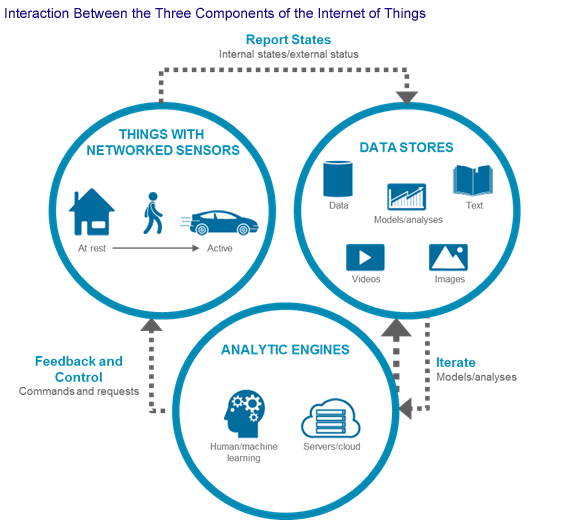This blog writes a lot about risk and the Internet of Things. Specifically: we talk about how smart, sensor rich, connected devices create all kinds of new risks for enterprises and consumers. It goes without saying that feature development (and adoption) are running well ahead of pesky issues like secure design and deployment or data privacy.
Smart companies are trying to put some brakes on that trend. (Witness Google prohibiting sensitive health data from its Android Wear platform.) But, by and large, companies are plowing ahead into IoT technologies without a lot of consideration of the risks.
But there’s one industry where risk _is_ the business: the insurance industry. And there, the thinking about the potential of Internet of Things is decidedly bullish. In fact, a recent report from the financial services research firm Celent (paywall) suggests that broad adoption of IoT technologies will revolutionize the way insurance companies market and sell to consumers and businesses.

[Read Security Ledger coverage of the Internet of Things and its impact on the insurance industry.]
For an industry that has long relied on historical data and best guess estimates to calculate the risk of insuring customers, the Internet of Things will provide a wealth of (near) realtime data on everything from smoke alarms to automobiles to implantable medical devices. That will enable risk calculations that are far more accurate and (therefore) rates that much more accurately reflect risks.
Connected vehicles, for example, can tell insurance companies that Paul is a pretty safe 18 year old driver whose family should qualify for lower rates, while his friend Jason is a maniac behind the wheel. That’s great news. But not every insurance carrier will benefit.
Writing about the report, the site Insurance Networking News quotes Donald Light, the director of Celent’s Americas P&C insurance practice, saying that the Internet of Things (IoT) could set off a kind of Darwinian battle for survival among competing carriers, with victory (and survival) going to those that are the swiftest to embrace and harness the data from IoT devices in the home, office and automobile.
“From an industry point of view, it’s really an adverse selection game,” Light tells Insurance Networking News. “If I know more about the risks, and I have the secret sauce – the closed loop, which reduces losses – I can offer some of my policyholders a better deal. I can get the kind of policyholders I want and the others go off to other insurance companies that are not being as smart about pricing and underwriting.”
That closed loop Light is talking about is the same one everyone else is talking about: devices, cloud and data analytics. For insurers, however, the payoff is huge: carriers will know not just that an office building they have insured has a fire suppression system installed – they’ll be able to monitor how well it is being maintained, and even provide their customer with tips on maintaining it better (thereby lowering their rate).
Some larger insurance carriers have been early to the game, leveraging technologies like GPS and the cloud to monitor driving patterns and styles, for Pay-As-You-Drive program that adjust rates accordingly for careful and hazardous behavior.
But such features raise pointed privacy concerns. Researchers at the University of Denver have shown, for example, that collected data on how you drive can easily be used to determine where you drove – provided a known starting point (like your home).
Speaking at MIT Technology Review’s EmTech Event in October, Joe Coray, is the Vice President of Technology & Life Science, Renewable Energy and International business at the insurance giant The Hartford said new technology such as autonomous vehicles could make roads much less safer, and insurers much less liable to face claims. But it will also complicate liability claims, especially when software based flaws would seem to have played a part in an adverse incident.
